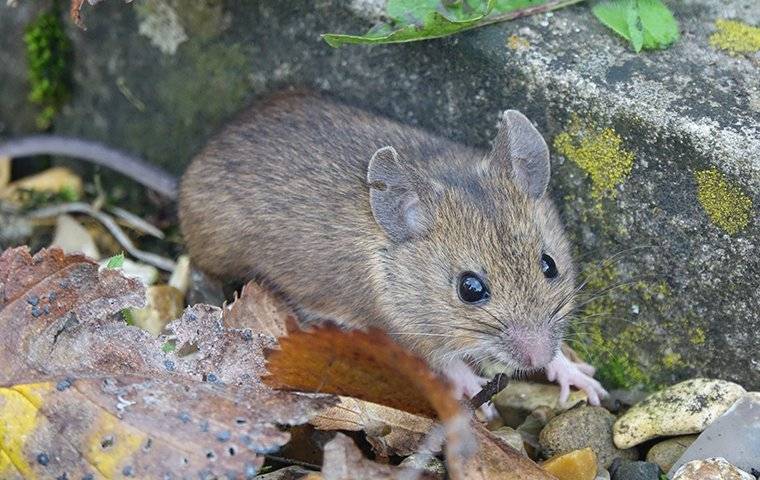When it comes to rats and mice, most people think of rats as the bigger problem. Mice are cute, and rats are gross. Mice are tiny, and rats are huge. Mice eat seeds and nuts, and rats root through the garbage. However, even though mice may be a lot less repugnant than rats, that doesn’t mean their paws are clean. Mice aren’t really innocent of any of the crimes committed by rats. They still do property damage. They still spread disease. And they still bring secondary pest infestations into your home. That means you need to take mouse prevention just as seriously as you take rat prevention – no matter how cute and cuddly mice might look.

A House With A Mouse
Mice and rats look pretty similar, but there are a few ways you can differentiate between them. Size is the key distinction. While rats can be well over a foot long and weigh close to a pound, mice are typically no longer than a few inches and don’t weigh more than a couple of ounces. Mice also have larger ears than rats in proportion to their bodies. They have fuzzier tails, thicker fur, and thinner facial profiles than rats. They also have proportionately smaller feet.
One good thing about a mouse infestation is it often indicates you don’t have rats. Rats are larger and more aggressive than mice, so once rats move in, mice tend to move out. If you see mice, you likely don’t have rats – yet. The same things that attract mice can often attract rats as well.
Mice come to your house seeking easy access to food and water as well as safe, warm nesting sites. All these things are readily available in most human habitations. And since mice are so tiny and so good at scurrying around unseen, seeing even a single mouse can often be an indicator of a larger infestation. You rarely have “just one little mouse.”
Dangers Of Mice
As we said above, mice cause a lot of the same problems rats do. They destroy property while they’re busy gnawing away on your home’s hard materials to keep their constantly growing teeth ground down. They also wreak a lot of destruction by ripping up insulation and chewing through walls to build nests. Not to mention the diseases they carry. Mice carry basically the same laundry list of pathogens that rats do, including:
- Bubonic Plague
- Hantavirus
- Leptospirosis
- Salmonella
- Tularemia
Mice also have lots of parasites like fleas, ticks, and intestinal worms. When they bring these into your home, they can infect your pets and cause secondary infestations.
That means you need to work just as hard to prevent mice as you do to prevent rats. Fortunately, most of the measures you take to deter mice’s larger cousins work on mice themselves. You’ll just need to account for mice’s smaller size when you take the following preventative measures:
- Cover all indoor and outdoor garbage.
- Never leave any foods, including pet foods, sitting out. Store them in the fridge or hard plastic containers.
- Seal off potential entry points like holes in your home’s exterior. Keep in mind mice are tiny, and they can squeeze themselves into some pretty tight spots.
- Put mesh covers on ventilation openings and chimneys.
Unfortunately, the reality is mice are a tough pest to keep out, so you’re likely to need expert help. Here at Freedom Pest Control, our comprehensive mouse control services can not only help you safely and effectively eliminate current rodent infestations, but they can also help you come up with a custom plan to prevent future reinfestations. So give us a call at (978) 767-2468 or visit our contact page to request your service today.

